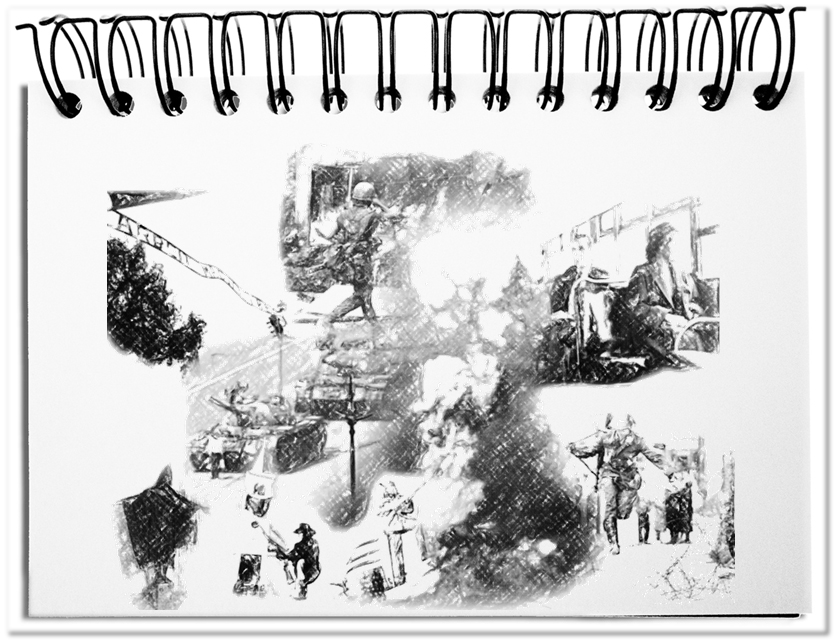Who? What? When? Where? How? Why? Good questions, in order to seize an issue. Publications are more and more taken to pieces. For this reason many avoid to criticize directly in order not to expose oneself to criticism. It is also not necessary to denounce, since it is sufficient to mention the topic. Our acquired assessments lead then automatically to a collective condemnation – without denouncing directly, but through simple remembering.
A skillful culture of remembrance can be used for keeping awake, refurbishing, or reconstructing the stigma of a social group in the consciousness of the society. Examples are everywhere. Thus Japan keeps each year on August 6th in Hiroshima and on August 9th in Nagasaki the memory awake of the nuclear bombs that were dropped on Japan in 1945 by the USA. Or think about the western media that regularly refreshes the memory of the incident on June 4th in 1989 besides the square of Heavenly Peace in Beijing under the heading ‘Tiananmen massacre’. Or the speech of president Obama on the 24.7.2008, at the Siegessäule in Berlin, where he rebuilt the spirit of the cold war *1.
The accusation is, so to speak, in the corresponding rituals of remembrance – publications, reportages, meetings and the like. The following elements are particularly effective.
- Catch words
These are terms that trigger specific associations in the target group with an emotional and evaluative meaning, e.g. political left and right, freedom fighters and terrorist, capitalism. - Images
The media society has an huge amount of pictures anchored in the collective memory, e.g. Abu Ghuraib, the fleeing policeman at the Berlin wall, the Chinese with purchase bags, who placed himself into the way of tanks besides the square of Heavenly Peace (s. picture above). - Contemporary witness
The statements that contemporary witnesses use to remember events after many years. - Comparisons
The comparison of current events with historical incidents provides at the same time an assessment of the current situation. For example in 2014, the comparison between the beginning of the First World War and the current political situations around the world.
The remembrance keeps the meaning of circumstances, events or emotional experiences awake. Even if the situation became obsolete, old feelings are kept active by remembering. On the one hand, it can contribute to the fact that similar things will never happen again. On the other hand, the opportunity of forgetting and forgiving is missed and old dislikes are preserved for a long time.
Bottom line: Criticizing, accusing, stigmatizing and condemning directly is the last resort in order to denounce shortcomings. The subtler way is by commemorating. That keeps the former issue awake and the original emotion active, without becoming directly vulnerable by using active criticism.
*1 “In this century – in this city of all cities – we must reject the Cold War mind-set of the past, and resolve to work with Russia when we can, to stand up for our values when we must, and to seek a partnership that extends across this entire continent.” 24.7.2008

